If you suffer from scrotal eczema (on the balls), you’re not alone. This condition affects millions of men worldwide, and it can be both uncomfortable and embarrassing. In this blog post, we’ll discuss what scrotal eczema is, what causes it, and how you can treat it. With the right information and treatment plan, you can manage your scrotal eczema and get back to living your life.

As an Amazon Associate, I may earn from qualifying purchases.
What is Scrotal Eczema?
Scrotal eczema is a type of eczema that affects the skin on the scrotum, the sac that holds the testicles, and is commonly referred to as the “balls”. This condition can cause itching, redness, and burning. It can also lead to cracked, dry, or flaky skin. Scrotal eczema is a common condition, but it’s often misunderstood. In this blog post, we’ll set the record straight about scrotal eczema.
Who Gets Scrotal Eczema?

Scrotal eczema can affect anyone of the male gender, but it’s most common in men between the ages of 30 and 50. Men who have a history of other types of eczema are more likely to develop scrotal eczema.
This condition is also more common in men who are uncircumcised. If you have diabetes or a weakened immune system, you may also be at increased risk for scrotal eczema.
Scrotal Eczema Causes
The exact cause of scrotal eczema is unknown, but researchers believe that it may be caused by a combination of factors, including genetics, age, and certain medical conditions.
People with scrotal eczema often have a history of other skin conditions, such as atopic dermatitis, psoriasis, or seborrheic dermatitis.
Additionally, people who suffer from excessive sweating are at increased risk for developing scrotal eczema.
List of Possible Scrotal Eczema Causes
- Age
- Allergies
- Contact with allergens
- Contact with irritants
- Diabetes
- Excessive sweating
- Friction
- Genetics
- Hormones
- History of other skin conditions
- Idiopathic (unknown)
- Irritation
- Psoriasis
- Stress
- Tight clothing
- Warm/humid climate
How Long Does Scrotal Eczema Last?
Scrotal eczema can be a short-term problem, lasting a few days to a few weeks. On the other hand, it can also be a long-term (chronic) condition that lasts months or even years. If you have chronic scrotal eczema, you may experience flare-ups followed by periods of remission.
Flare-ups can be triggered by things like weather changes, stress, sweating, Tight clothing, and contact with irritants or allergens. Knowing what triggers your flare-ups can help you avoid them in the future.
Can Scrotal Eczema Spread?
Scrotal eczema can spread during a flare-up. Any spreading should be near the original site and should not bounce around to other areas of your body. Scrotal eczema is not contagious, and you cannot pass it on to someone else.
If you are having eczema-like symptoms that are spreading to other areas of the body, or other people, visit your doctor immediately for a proper diagnosis.
Symptoms of Scrotal Eczema
The most common symptom of scrotal eczema is itchiness. You may also notice that your scrotum looks red or inflamed, or that the skin appears dry, cracked, or scaly. In some cases, fluid-filled blisters can form on the affected skin.
- Blisters
- Bumps
- Burning
- Cracking skin
- Dryness
- Itchiness
- Pain
- Rash
- Redness
- Scaling or flaking skin
- Scrotum pain
If you have any of these symptoms, it’s important to see a doctor so they can diagnose your condition and prescribe the appropriate treatment.
Pictures of Scrotal Eczema
The following images show a few different stages and severities of scrotal eczema. As you can see, this form of dermatitis can look different from person to person, which is why it is important to get evaluated by a physician.
Scrotal Eczema on Both Sides
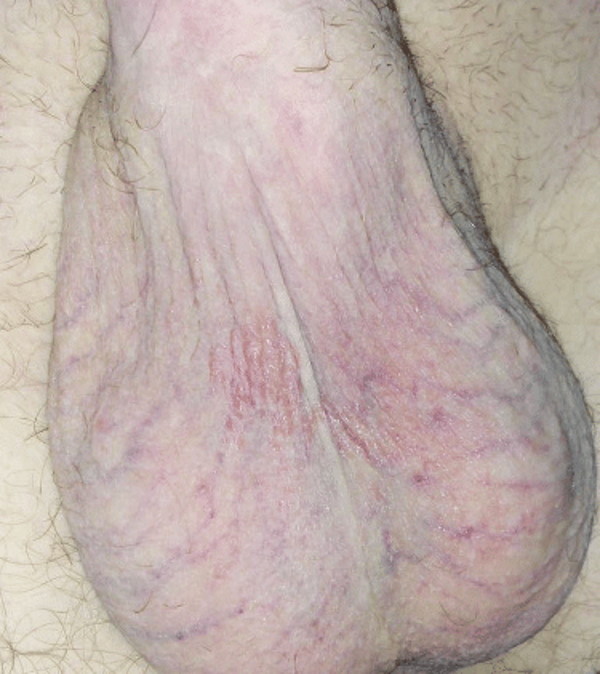
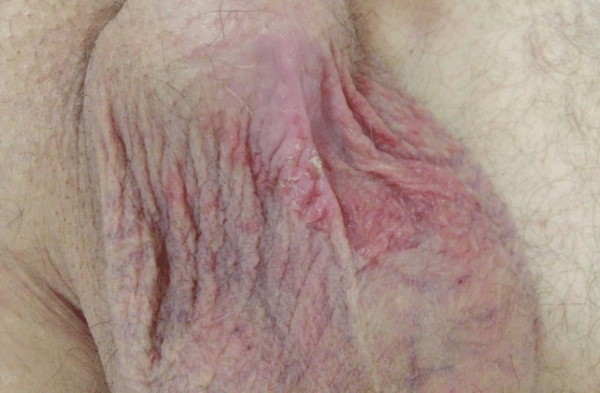
These pictures show scrotal eczema that was caused by the use of oral medication. Medications are just one potential cause of dermatitis.
Mild to Severe Scrotal Dermatitis
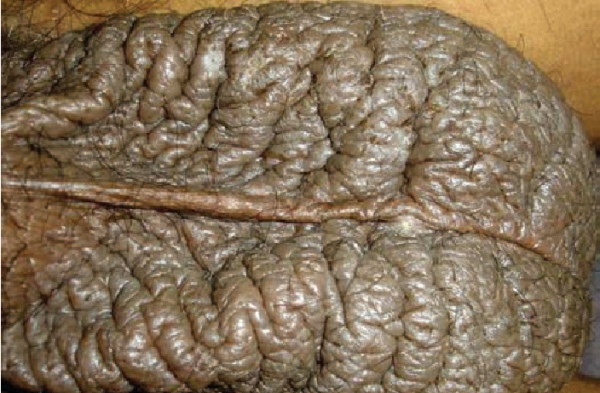
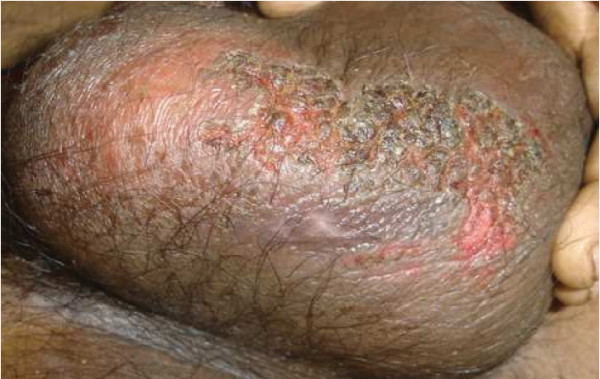
Diagnosis
To diagnose scrotal eczema, your doctor will inspect the skin on your scrotum and ask about symptoms. They may also inquire if anything seems to alleviate or aggravate them. There is no single test for scrotal eczema. If an allergy is suspected as the root cause of eczema, then treatment starts with allergy medications or creams.
Scrotal Eczema Treatment

There is no cure for scrotal eczema, but thankfully there are treatments that can help relieve your symptoms and prevent flare-ups. Treatment will be different for everyone because it will depend on the severity of your eczema and your symptoms.
In some cases, home remedies may be enough to keep your symptoms under control. But if over-the-counter (OTC) treatments don’t work or if your symptoms are severe, you may need prescription medication from a doctor.
Anti-itch creams
Over-the-counter and prescription anti-itch creams can alleviate the uncomfortable itching and redness that comes with eczema. They work either by numbing the area or stopping histamines, which are responsible for itchiness.
Moisturizers
Moisturizers are an important component of any eczema treatment plan. They aid in the sealing in and maintaining of moisture in the skin. This can help to reduce inflammation and itching. Minimize the chance of discomfort by using a fragrance-free, hypoallergenic lotion or cream.
Corticosteroids
Corticosteroids are a class of medication that helps to reduce inflammation. They may be useful in treating eczema since they aid in managing the immune system response that causes irritation and dry, scaly skin.
There are many choices out there, talk with your doctor to find what would be best for you. Here are the most popular corticosteroids on Amazon.
Cold compress
A cold compress may help relieve the symptoms of scrotal eczema by soothing the skin and reducing inflammation. It can also aid in the reduction of itching and burning.
Wrap a few ice cubes in a towel and hold them against your scrotum for a few minutes (or a bag of frozen peas). Repeat as needed. Or you can get a pair of underwear designed to ice your private parts specifically.
Undeeze Underwear
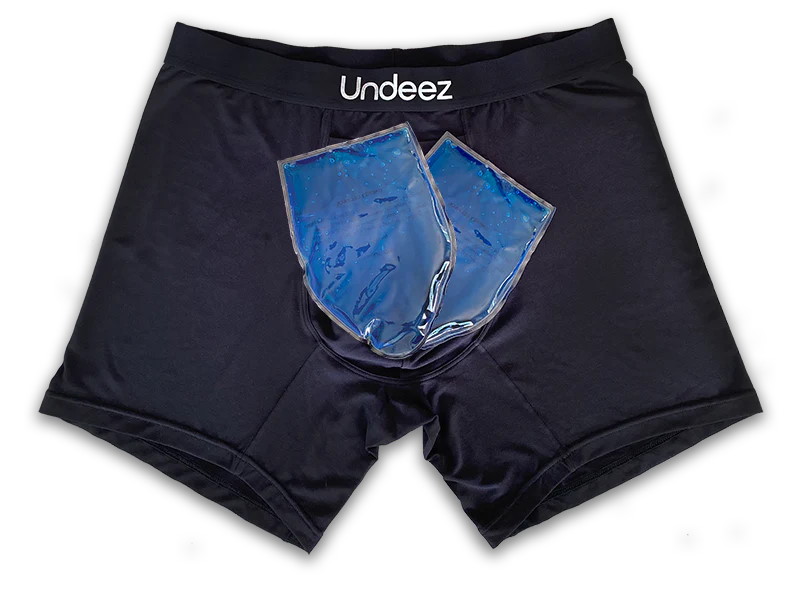
The Undeez underwear can soothe the skin and reduce scrotum inflammation, without the need for ice. These underwear hold two ice packs right where you need them. The ice packs contain a thick gel to stay colder longer and are reusable.
Whether you are looking to ice the boys because of eczema, or maybe you have a vasectomy coming up, these underwear are a no-brainer as a mess-free cold compress.
Check out their stats, or order them now on Amazon.
Oatmeal Bath
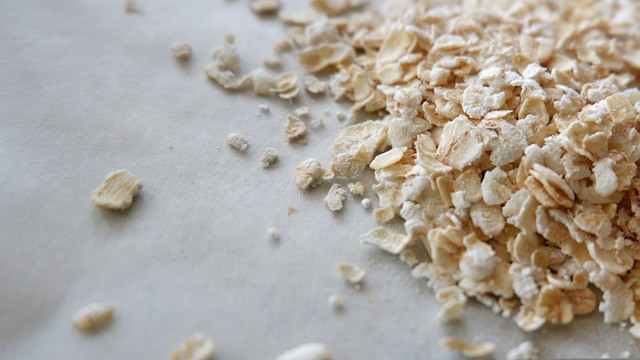
An oatmeal bath is an excellent way to soothe the skin if you’re experiencing itching or burning. To prepare one, start by grinding oats into a powder. Then, add the powder to your bathtub while filling it with water. Let yourself soak in the tub for 20 minutes.
Tip: Put the oats in a mesh strainer and hold it under the water while it’s running for a “less mess” experience.
Pro Tip: If you want to avoid the headache of dealing with the oats, strainers, and grinders, pick up some pre-made sachets (or make your own). This allows you to just throw them out when you are done with the bath.
Premade Oatmeal Bath Sachets
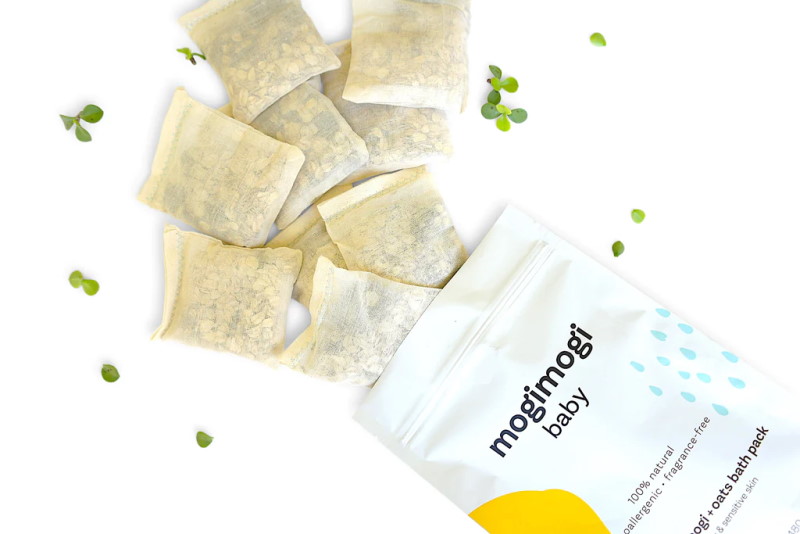
Have you taken an oatmeal bath before and it turns into a big mess? I know the feeling! Luckily, there are these Mogimogi oatmeal sachets so you can actually enjoy the bath and get some relief, without goopy oats everywhere.
The oatmeal bath sachets go to work immediately in the bath water and they don’t clog your drain.
Grab a box of these bad boys from Amazon, and get yourself some eczema relief.
Antihistamines
Antihistamines are medicines that reduce symptoms of eczema by blocking histamine’s activity. Histamine is a chemical released during an allergic response that causes inflammation, itching, and swelling in the skin.
Antihistamines can help to relieve these symptoms and improve the overall condition of your skin by blocking the action of histamine.
Topical Prescription Medications
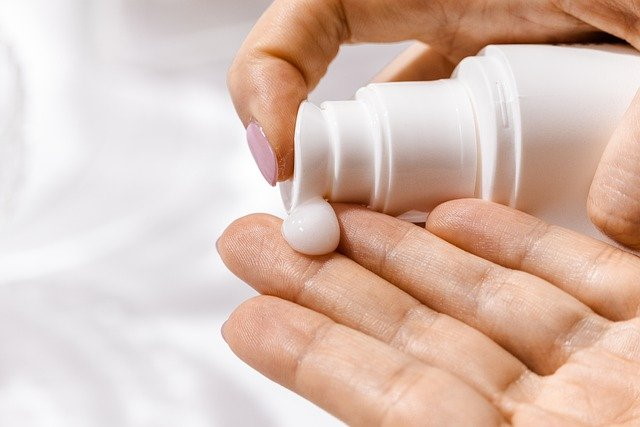
Topical treatments are generally the first choice for eczema patients since they are typically less expensive and cause fewer adverse effects than oral medicines. To reduce swelling, and redness irritation caused by eczema flare-ups, your doctor will most likely prescribe a corticosteroid cream or ointment.
Prescription corticosteroids
Corticosteroids work by mimicking the effects of the hormone cortisol. Cortisol is a steroid hormone that is produced naturally by the adrenal gland. When cortisol levels are high, it can help to reduce inflammation in the body. Sometimes the over-the-counter and self-help treatments just don’t cut it. In this case, your doctor may prescribe corticosteroids.
Prescription steroid cream
These creams are similar to what you would find in hydrocortisone but are beefed up to the prescription level.
Pimecrolimus cream
This medication helps to suppress the immune system and can be used in cases where corticosteroids are not effective.
Oral Prescription Medications for Scrotal Eczema

If topical medicines don’t help you feel better or if you have moderate to severe eczema, your doctor may suggest additional oral therapies in combination with topicals.
Systemic corticosteroids
These medications are taken orally or intravenously and can be used in severe cases where other treatments have not been successful.
Immunosuppressant drugs
While immunosuppressant drugs can help to ease moderate to severe eczema symptoms by reducing inflammation caused by overactive immune system responses, these medications come with a risk of serious side effects. As such, they should only be used as a last resort when other treatments have failed.
Biologic drugs
Another choice for individuals with mild to severe eczema is the use of biologics. These medicines target specific inflammatory proteins. Biologics, like immunosuppressants, come with a danger of serious adverse effects, so they’re usually used only when other therapies haven’t helped.
Ultraviolet Light Therapy (Phototherapy)
If you suffer from moderate to severe eczema, you might want to consider ultraviolet light therapy or phototherapy. This treatment exposes your skin to UV light in order to help it heal. There are two types of ultraviolet light therapy: broadband and narrowband.
Broadband UV light: A type of UVB radiation that is used to treat a wide range of skin conditions, including eczema.
Narrowband UVB radiation: A type of UVB radiation that is specifically targeted at treating eczema.
Both types of ultraviolet light therapy are effective in reducing inflammation, itching, and scaling associated with eczema. They can also help to improve the overall condition of the skin.
Scrotal Eczema Home Remedies

If you have mild symptoms of scrotal eczema, home remedies may be all you need to find relief. With that said, even if your symptoms are mild, it’s always a good idea to talk to a doctor before trying any new treatments—especially if you’ve never had eczema before. Some home remedies that may help include:
- Soaking in a warm bath
- Applying coconut oil or another type of moisturizer
- Using nonprescription antihistamines
- Ice the area
How to Prevent Scrotal Eczema
There are a few things to consider when preventing scrotal eczema flare-ups. Of course, the best option would be to know your triggers and avoid them (if possible). Besides avoidance, try these prevention techniques.
Keep your skin moisturized
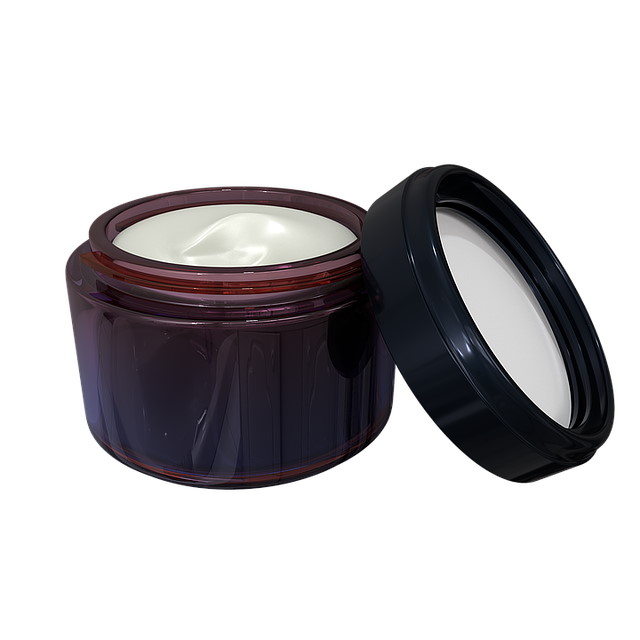
It’s critical to moisturize your skin if you have eczema. This can assist with preventing the skin from becoming dry, cracked, and inflamed. Apply a mild, unscented moisturizer on a regular basis, especially after bathing. You may also want to use a thicker lotion rather than a lotion.
There are so many choices on the market. In my opinion, I would use a cream that meets the following criteria.
Tips for finding a good moisturizer
- Unscented
- Thicker than lotion
- Has a good EWG rating
- Good reviews
- Easy to find
My Moisturizer of Choice
Taking the above information into consideration, I would try Eczema Honey® first if I had scrotal eczema.
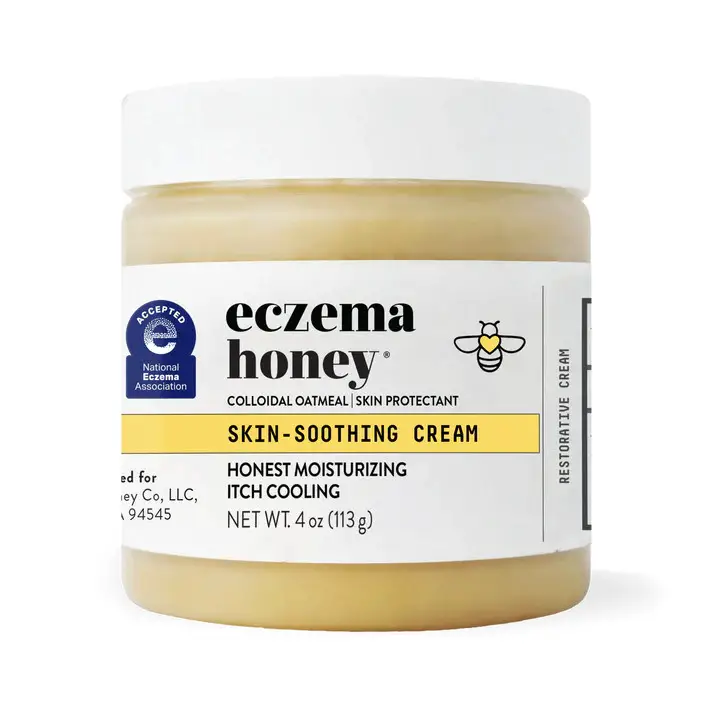
- EWG Rated “1” low hazard
- Fewer ingredients than others
- No harsh chemicals
- It is thicker than lotion
- NEA Seal of Acceptance
- Found at multiple stores
If you are interested in giving this cream a go, you can check it out on Amazon.
Avoid harsh chemicals
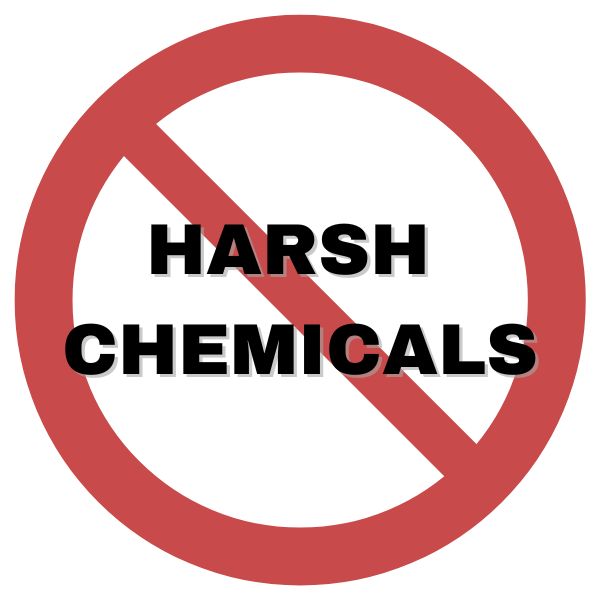
Chemicals can be brutal to your skin. Avoiding chemicals, or even switching to a more natural soap or detergent might just be what your body needs to keep flare-ups at bay. Consider avoiding or switching out the following chemicals.
- Bodywash
- Cleaners
- Detergent
- Industrial chemicals
- Scented soaps
- Shaving cream
Environmental Working Group for Product Safety
The Environmental Working Group (EWG) is a non-profit organization that works to provide product ingredient information to the public (you). You may visit their website or download their app. The following is an example of the information provided by the EWG on household products.
EWG Product Page Example
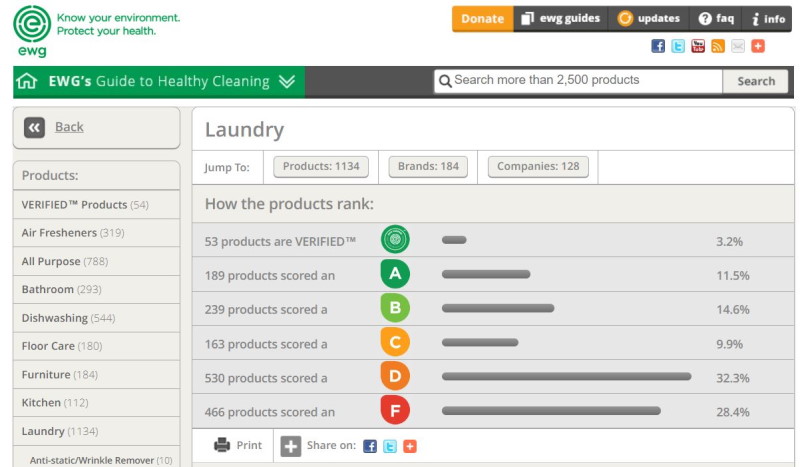
This example shows the overall ratings for laundry detergents that have been investigated by the EWG. As you can see the ratings range from “EWG Verified™” (best), to an “F” (worst).
EWG Single Product Example
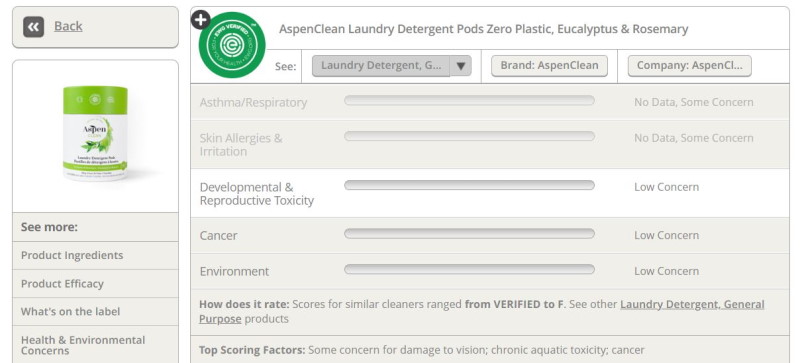
You can zero in on a specific product, like the AspenClean laundry pods in this example. I chose this cleaner, just as an example! Here you will find an image of what the product looks like, as well as different categories and the concerns the EWG has with that product.
Product Page Ingredient List
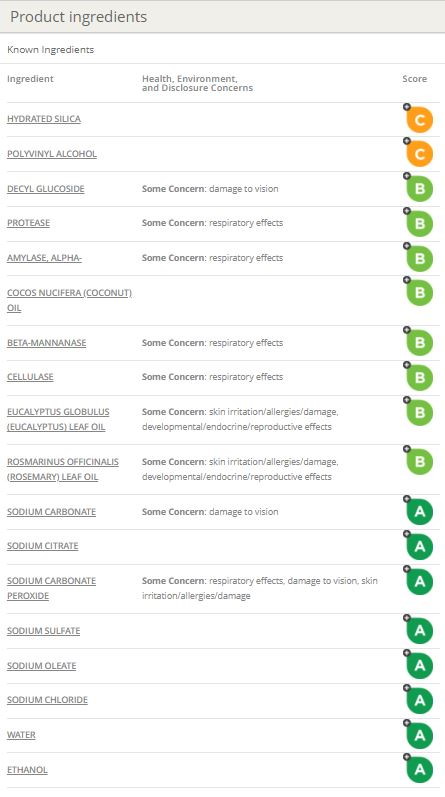
The ingredients list, which can be found on the individual product page, lists all the ingredients contained in the product. Furthermore, the EWG explains to you the concerns with those ingredients and gives them a score/rating.
Avoid Irritation
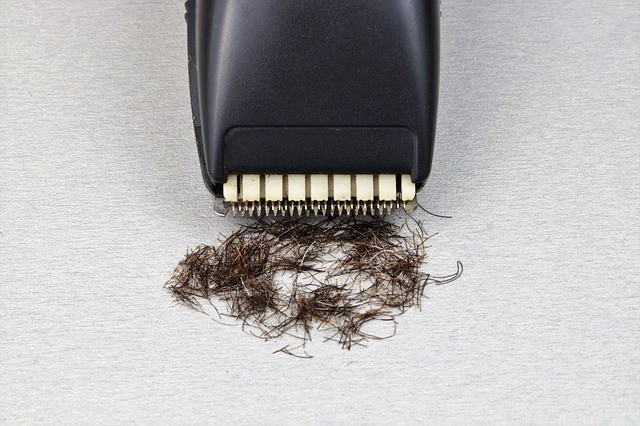
There are a few activities that can create discomfort around your scrotum. If you suffer from eczema, it’s advised to avoid these activities in order to prevent any flare-ups. This includes shaving the area (or using scented shaving cream), as well as anything that might cause friction.
Don’t Itch or Scratch
Scratching is never good for the skin, especially for eczema sufferers. Scratching can cause additional inflammation, damage to the skin, and even break the skin open. If you do decide to scratch you may lengthen your healing time as well as make that area prone to infection.
Track your symptoms
Have you noticed that on certain days of the week, or after particular activities, your symptoms emerge? Keep track of this information and you’ll have plenty of data to help narrow down the source of eczema in your privates.
FAQs
Here are the top frequently asked questions regarding scrotal eczema.
Can you use aloe vera on scrotal eczema?
Yes, aloe vera is a great natural way to soothe and provide moisture to the skin. Check the ingredients if you are not applying straight from an aloe vera plant, sometimes there are added chemicals and fragrances.
Is scrotal eczema curable?
No, scrotal eczema (or any other eczema) is not curable. The symptoms can be treated, and you could go years without having eczema symptoms.
How common is scrotal eczema?
Scrotal eczema is considered a very common condition. Due to the sensitivity of the topic, there are not many individuals who openly share stories about their condition.
Is scrotal eczema serious?
Scrotal eczema can become serious if not properly treated. If scrotal eczema symptoms get severe, or the area becomes infected, these can lead to serious complications.
Is scrotal eczema an std?
No, scrotal eczema is not a sexually transmitted disease (STD). Some STDs can present with similar symptoms to eczema, so it is best to get properly diagnosed and treated.
Is Vaseline good for scrotal eczema?
Yes, petroleum jelly (vaseline®) can be good for scrotal eczema. Petroleum jelly protects the skin and provides much-needed moisture.
Final Thoughts
Scrotal eczema might seem embarrassing, but the good news is that you can treat the symptoms, and your health should come first! See a doctor for an accurate diagnosis. Don’t forget to grab a pair of ice-pack underwear, or try out the eczema honey cream!
Next up, check these out:
